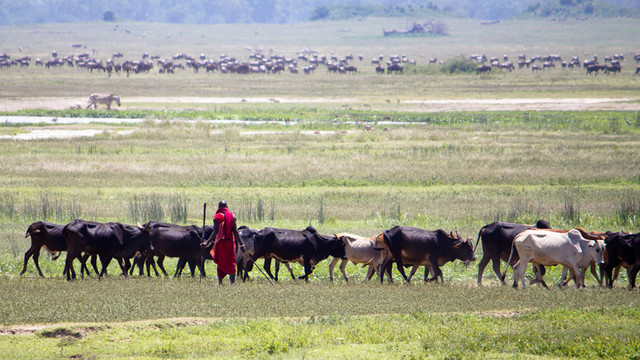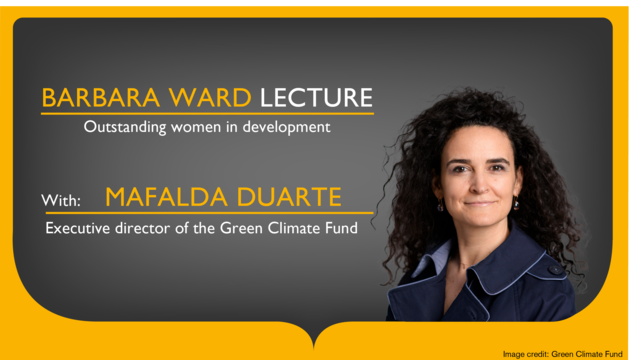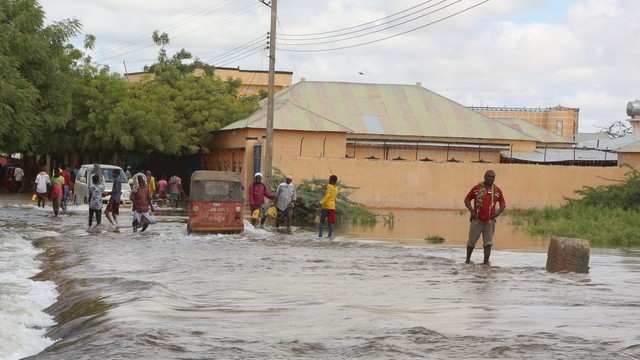How far will the UK go to align aid with the Paris Agreement?
The Independent Commission for Aid Impact and IIED held an event on 21 March 2022 to examine the UK's progress towards aligning aid with the Paris Agreement and explore opportunities for action.

West Africa’s resources are increasingly at risk due to recurrent droughts, rising sea levels and deforestation with large consequences for economic development and food security (Photo: Mike Goldwater/GWI West Africa/IIED)
The UK has made a strong commitment to align its aid spending with the Paris Agreement’s long-term goals. As the devastating consequences of climate change increase worldwide, so does the urgent need to turn this commitment into action.
At this event, held online and in person on Monday, 21 March 2022, participants examined the UK's progress towards aligning aid with the Paris Agreement and learned from the experience of a Multilateral Development Bank working on this agenda. The potential of the UK's forthcoming International Development Strategy and the implications for developing countries' climate finance planning were both unpacked.
In 2019, the government made a commitment to align its official development assistance (ODA) with the Paris Agreement’s long-term goals. While the UK is the only country to make an explicit cross-government commitment, it was not the first aid provider to pursue alignment. Prior to this in 2017, six multilateral development banks (MDBs) announced their intentions to align with the Paris Agreement.
A rapid review conducted by the Independent Commission for Aid Impact (ICAI) found that while significant work has been undertaken by the UK government to align ODA with the Paris Agreement’s long-term goals, a roadmap for full operationalisation is needed. It also highlighted that for UK ODA to be Paris aligned, all MDBs that the UK contributes to also need to be Paris-aligned.
The forthcoming International Development Strategy will set out the UK government’s approach to international development over the next decade. It presents a key opportunity to truly embed the commitment to align ODA with the Paris Agreement, with accountable, timebound milestones.
This opportunity is all the more important given the UK’s leadership role at COP26 and the contentious decision to reduce the percentage of gross national income provided as overseas aid.
Participants at this event discussed the UK's progress towards aligning aid with the Paris Agreement. Among the questions were:
- What are the opportunities and barriers and what role can the forthcoming International Development Strategy play in delivering on this commitment?
- What can we learn from MDB’s and their work to make activities compatible with the Paris Agreement?
- What are the implications for developing countries’ national climate planning processes?
- How can we work with developing countries to establish and promote international best practice on Paris alignment of UK aid?
- And what reporting mechanisms need to be in place to ensure accountability?
Speakers
- Vel Gnanendran is the climate and environment director for the Foreign, Commonwealth & Development Office, UK
- Kevin Kanina Kariuki is vice-president for power, energy, climate and green growth at the African Development Bank Group. He has over 30 years of experience in power system development, renewable energy development and energy efficiency, climate change and green growth, strategic energy partnerships, energy financial solutions, policy and regulation.
- Tamsyn Barton is the chief commissioner of the Independent Commission for Aid Impact and has 25 years’ experience working in international development, delivering and overseeing a wide variety of programmes including those run by UK government, small NGOs and international financial institutions.
- Ebony Holland is a senior researcher (nature-climate policy lead) in IIED's Natural Resources and Climate Change research groups. She has worked across government, international development organisations, the United Nations and the private sector in Australia, the Pacific, Europe and the UK.
- Andrew Norton (moderator) is the director of IIED and an applied anthropologist working on a range of issues related to social and environmental justice.
Event coverage
A recording of the event is available below or on IIED's YouTube channel, where you can also find links to take you straight to the contributions of each of the key speakers.
IIED events newsletter
Sign up to our mailing list for updates and invitations to events throughout the year, including webinars, critical themes and debriefs.
Contact
Juliette Tunstall (juliette.tunstall@iied.org), extenal events officer in IIED's Communications Group


